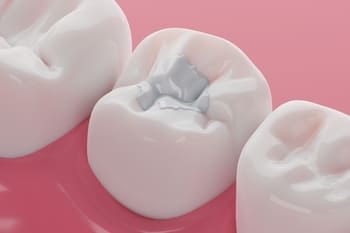Table of Contents
Visiting the dentist can be a source of anxiety for many, primarily due to concerns about pain during dental procedures. Dental anesthesia plays a crucial role in ensuring a comfortable and pain-free experience. However, a common question arises: How long does dental anesthesia last? Understanding the duration and factors influencing dental anesthesia can help you better prepare for dental appointments and manage post-procedure sensations effectively.
Understanding Dental Anesthesia
 Dental anesthesia involves using numbing agents to prevent pain during various dental treatments. Dental anesthesia ensures you remain comfortable throughout your visit, whether undergoing a routine cleaning or an extensive procedure like a root canal. Local anesthetics are the most commonly used type, targeting specific areas to block pain signals without affecting consciousness.
Dental anesthesia involves using numbing agents to prevent pain during various dental treatments. Dental anesthesia ensures you remain comfortable throughout your visit, whether undergoing a routine cleaning or an extensive procedure like a root canal. Local anesthetics are the most commonly used type, targeting specific areas to block pain signals without affecting consciousness.
Types of Local Anesthetics Used in Dentistry
Local anesthetics used in dental practices vary, but some of the most common include lidocaine, articaine, mepivacaine, and prilocaine. Each numbing agent has its own onset time, duration, and potency. Dentists select the appropriate anesthetic based on the type of dental procedure, the patient’s medical history, and individual needs to ensure optimal pain management.
How Dental Anesthesia Works
When a local anesthetic is administered, it temporarily blocks the nerves in the injection site from sending pain signals to the brain. This numbing sensation allows dentists to perform procedures without causing discomfort. The effectiveness of dental numbing relies on precise injection techniques and the appropriate dosage of the numbing agent.
Duration of Numbing Effects
The primary question is, how long does dental anesthesia last? The answer depends on several factors, including the type of anesthetic used, the location of the injection, and the individual’s metabolism. Typically, the numbing effects can last anywhere from one to five hours. Local anesthesia provides sufficient numbness for most routine dental procedures to ensure patient comfort throughout the appointment.
Factors Influencing How Long Dental Anesthesia Lasts
Several factors can influence the duration of dental anesthesia:
Type of Local Anesthetic: Different numbing agents have varying durations. For instance, lidocaine generally lasts for two to three hours, while bupivacaine can provide numbness for up to eight hours.
Dosage: Higher doses of anesthetic can prolong the numbing sensation but must be carefully managed to avoid potential side effects.
Injection Site: Anesthetics injected near bone or muscle may last longer due to slower absorption than those injected into fatty tissues.
Individual Metabolism: Each person’s body processes numbing agents differently. Age, weight, and overall health can affect the duration of anesthesia.
Medical History: Certain medical conditions and medications can influence the duration and effectiveness of dental anesthesia.
Common Dental Procedures Requiring Anesthesia
 Local anesthesia is essential for a wide range of dental procedures, including:
Local anesthesia is essential for a wide range of dental procedures, including:
Tooth Extractions: Removing a tooth, especially impacted ones, requires effective numbing to minimize pain.
Root Canals: This extensive procedure involves cleaning and sealing the tooth’s root canal system, necessitating prolonged numbness.
Fillings and Restorations: Even less invasive treatments like fillings benefit from dental numbing to ensure patient comfort.
Implants and Surgery: Advanced implant or oral surgery procedures rely heavily on local anesthesia for pain management.
What to Expect During and After a Dental Procedure
During your dental appointment, your dentist will apply a topical anesthetic to numb the surface before administering an injection at the required site. This dual approach minimizes discomfort during the procedure. After the dental treatment, you might experience residual numbness for a few hours, allowing you to avoid eating or drinking until the sensation completely disappears.
Managing the Numbing Sensation Post-Treatment
Once the dental anesthesia wears off, you may experience a tingling sensation or mild discomfort at the injection site. To manage this transition:
Avoid Eating: Avoid consuming hot foods or beverages until the full sensation returns to prevent accidental bites or burns.
Use a Warm Compress: A warm compress can alleviate residual discomfort and increase blood flow to the area, helping the numbing effects dissipate faster.
Monitor Your Mouth: Watch the injection site for unusual swelling or prolonged numbness, and report any that occur to your dentist.
Potential Side Effects and How to Handle Them
While dental anesthesia is generally safe, some patients may experience side effects such as prolonged numbness, allergic reactions, or increased blood pressure. In rare cases, a reversal injection may be necessary to reduce the numbing effects quickly. It’s essential to inform your dentist of any medical conditions or medications you are taking to minimize risks and ensure the safe administration of numbing agents.
When Anesthesia Lasts Longer Than Expected
 If the numbness persists beyond the typical duration, it’s advisable to contact your dental office. Prolonged numbness can sometimes be managed with a second reversal injection or other medical interventions. Additionally, certain medical conditions or interactions with other medications can cause extended numbing effects, so maintaining open communication with your dentist is crucial.
If the numbness persists beyond the typical duration, it’s advisable to contact your dental office. Prolonged numbness can sometimes be managed with a second reversal injection or other medical interventions. Additionally, certain medical conditions or interactions with other medications can cause extended numbing effects, so maintaining open communication with your dentist is crucial.
Tips for a Comfortable Dental Experience
To enhance your comfort during and after dental procedures involving local anesthesia:
Communicate with Your Dentist: Let your dentist know about any previous experiences with anesthesia and any concerns you may have.
Follow Post-Procedure Instructions: Adhering to your dentist’s eating, drinking, and oral care guidelines can prevent complications and ensure a smooth recovery.
Manage Stress: Practicing relaxation techniques before your appointment can help reduce anxiety and improve your overall experience.
Conclusion: Ensuring a Comfortable Dental Experience
Understanding how long dental anesthesia lasts and the factors influencing its duration can significantly enhance your dental experience. Knowing what to expect and how to manage the numbing effects enables you to approach your dental appointments confidently and easily. Modern dentistry offers a range of numbing agents and techniques to ensure your dental treatment is as comfortable and pain-free as possible. Always discuss any concerns with your dentist to tailor the anesthesia plan to your specific needs, ensuring a positive and stress-free visit to the dental office.
References
https://www.healthline.com/health/dental-and-oral-health/dental-anesthesia
https://health.clevelandclinic.org/how-long-does-novocaine-last
https://www.ncbi.nlm.nih.gov/books/NBK580480/